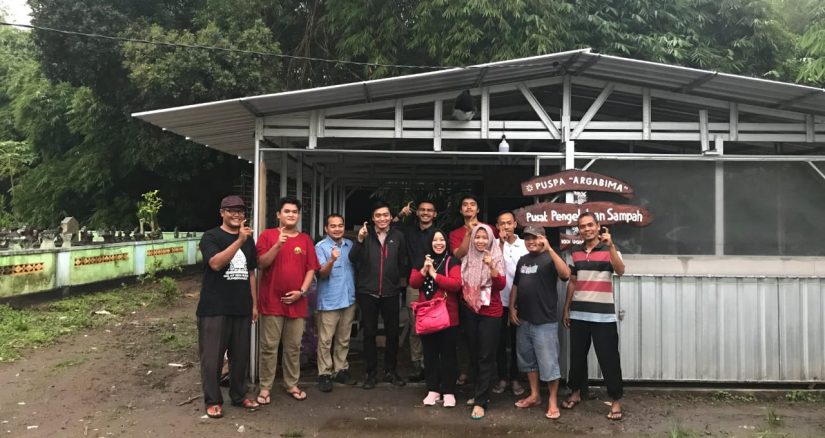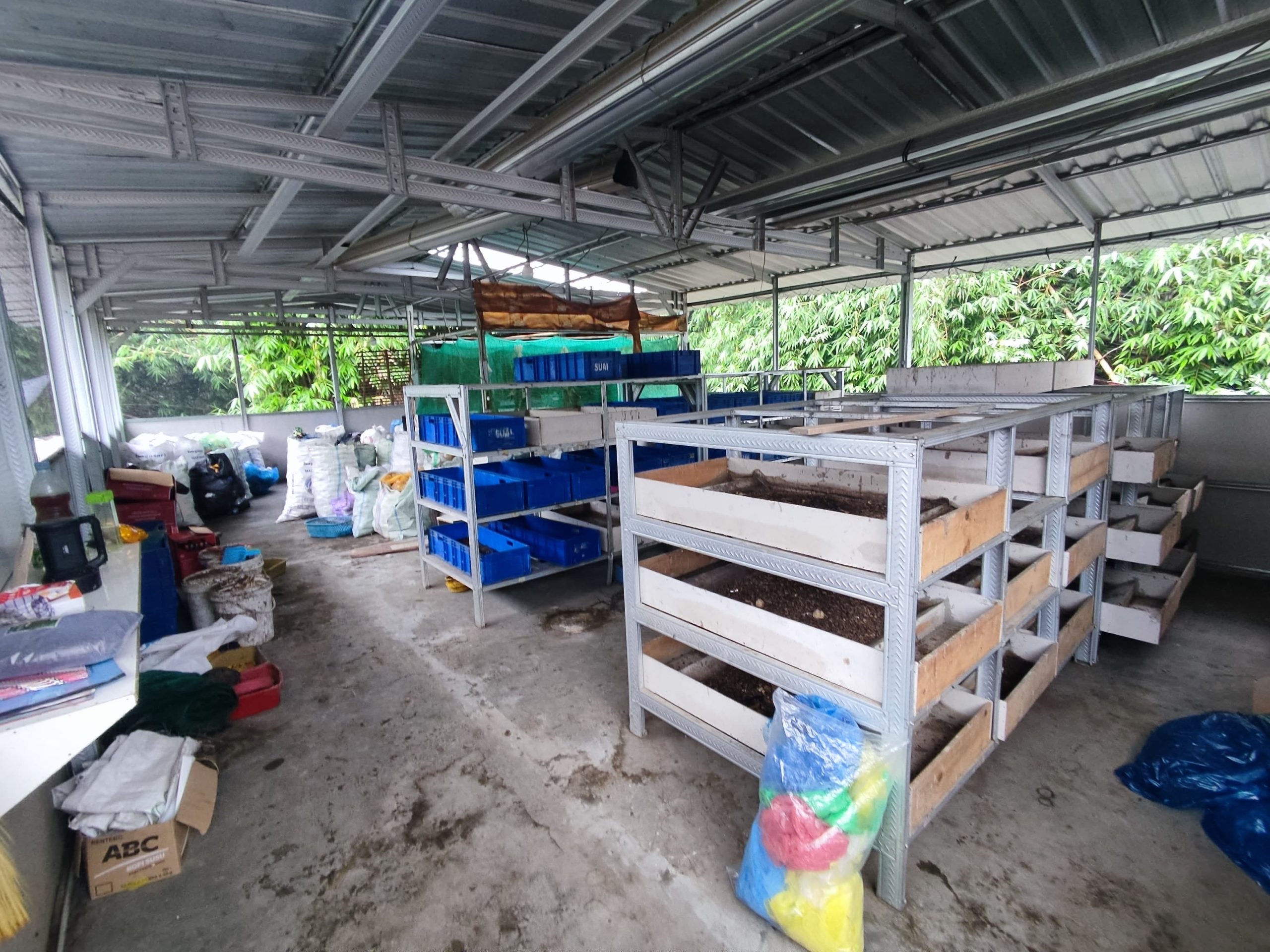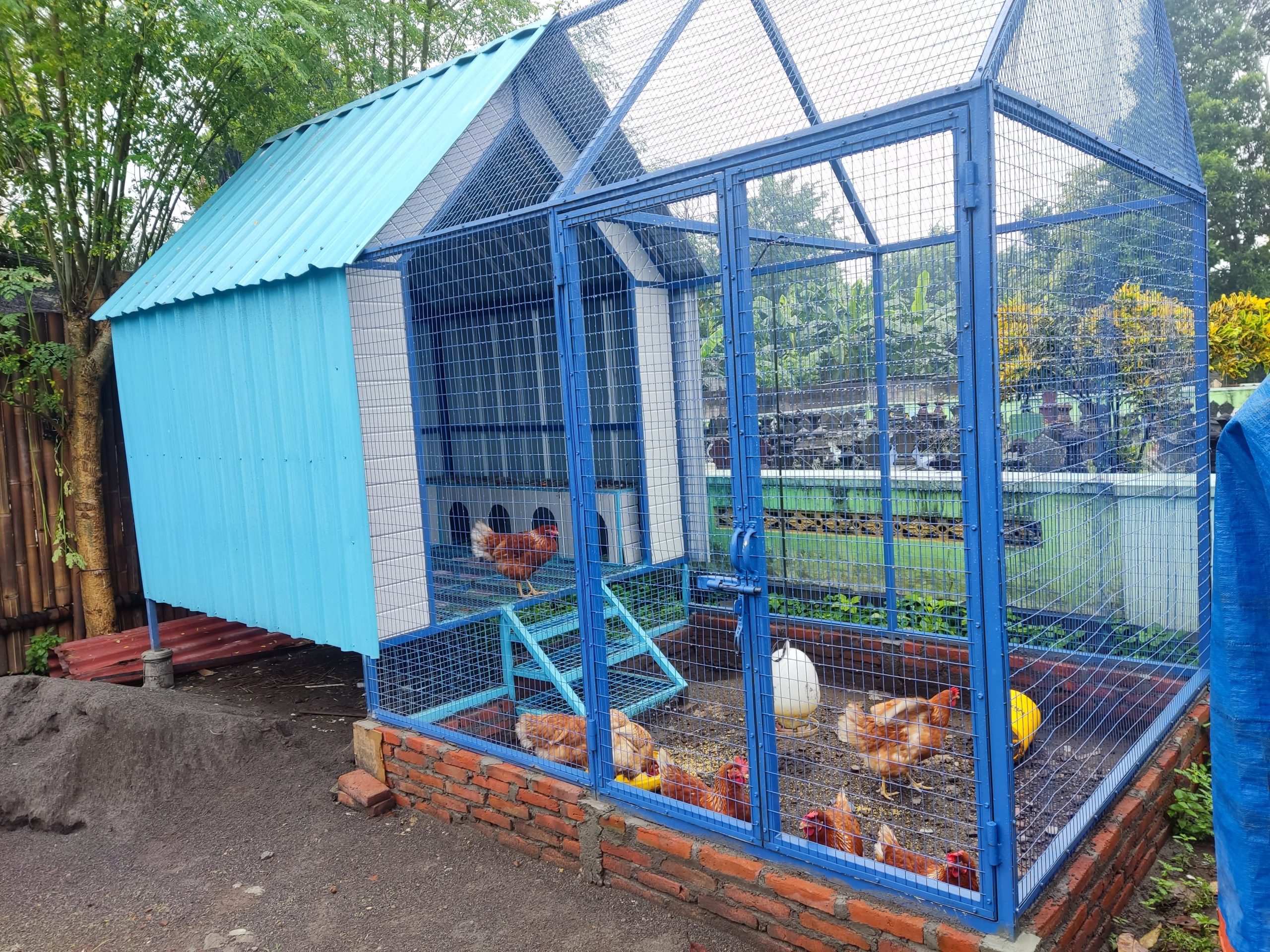
Klero Hamlet, located in Sumberharjo Village, Prambanan Subdistrict, Sleman Regency, Special Region of Yogyakarta, is a hamlet with high potential in socio-cultural aspects and tourist attractions. However, they encounter a significant environmental challenge; the closing of the Piyungan Landfill as the final disposal site for waste from the Prambanan community. Consequently, unmanaged waste has become an important issue that needs to be solved.
Through a collaboration with various community elements, UGM students and UGM lecturer, Dr. Wulan Tri Astuti developed a waste processing center adopting the zero waste concept, named Puspa Argabima Klero. It was established on August 10, 2022, with the goal of taking the responsibility for consumption and production (SDGs 12 Responsible Consumption and Production). This community is led by Mas Eliyadi, one of the local heroes in Klero Hamlet. Through various training and collaborations, Puspa Argabima Klero has successfully managed waste from 60 households in the village through waste sorting, utilization of organic waste through maggot cultivation, and the sale of organic waste in collaboration with a third party, Rapel.
In the early days of Puspa Argabima Klero, the community faced various challenges. For example, the maggot cultivation cage, which was initially built to cultivate maggot larvae, was hit by rain, causing huge damage such as flood. This led the community to initiate the construction of non-permanent structures using bamboo and tiles. Not only that, the building collapsed due to a heavy storm. However, these challenges did not stop their spirit, as they lent some money to build a 3×6 meters semi-permanent building to continue the maggot cultivation.
Through this program that is supported by BPDLH (Environmental Management Fund Agency), Puspa Argabima Klero expanded the building to 6×6 meters, obtained 6 maggot cultivation racks which are facilitated with dry and wet shredding machines, and acquired an oven to produce the flagship product named Pupuk Kasgot by Puspa Argabima Klero, and dried maggot product named Dr. Magro. Through these facilities, Puspa Argabima Klero successfully generated income through the sale of inorganic waste, fresh maggot products, Pupuk Kasgot, and Dr. Magro products which has allowed them to repay the loans and start to generate income for the 15 members of Puspa Argabima Klero which includes 8 housewives. Puspa Argabima Klero also managed 4-5 tons of waste every month, with 5-9 quintals of organic waste is used as maggot feed.
Puspa Argabima Klero has gained attention from the surrounding villages for successfully being the example of integrated waste management. They turn organic and inorganic waste into products that are valuable for the community. Their achievements were acknowledged by the Prambanan Subdistrict on their first anniversary on August 10, 2023.
Starting from this, Puspa Argabima Klero has evolved to be an educational waste processing tourism destination which utilizes maggot cultivation. With support from BPDLH, UGM students, and alumni, they integrate products such as maggots and Pupuk Kasgot with fisheries, farm, and agriculture through a mini-farm. This mini-farm is constructed to provide feed for hens, fish, and plant fertilizer, while also served as an interactive educational facility for visitors.
Furthermore, through ongoing programs, Puspa Argabima Klero expanded the building and created 18 cubic meters of an education space. This innovation also involved floor casting to facilitate waste sorting activities. Through a collaboration with tourism stakeholders, Puspa Argabima Klero has successfully attracted more than 650 visitors, including junior high school students and village government staffs in Kendal Regency, who are interested in learning about waste management. This additional income has positive impacts on both the development and sustainability of their program.

Photo 1: Maggot Cultivation Racks

Photo 2: Mini-Farm

